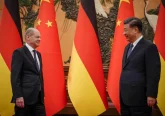Public International Law (henceforward referred to as International Law) tends to elicit from many people a cynical response; from many others a dogmatic attitude. International Law is thus seen by the first as irrelevant and unrealistic and by the latter as deserving a religious-like adoration.
Neither position is warranted by reality.
International Law affects all of us. There is hardly a domain of daily life that is not touched by it. From telecommunications to aviation, from agriculture to commerce, international law is almost everywhere. Unless one lives in a cave, in a remote area of the world, having scant contact with the outside world, the chances of not being affected by the workings of international law are almost non-existent.
Diplomatic relations between states are ruled by international law. Consulates which issue visas and passports do so according to multilateral or bilateral treaties. Sovereignty on land and in the seas is established by, and ruled according to, international law, which also delineates the legal framework of war and peace.
To be sure, there are instances in which countries violate international law. However, that by itself is no proof that international law is no law. After all, individuals violate domestic, municipal law. Does it mean that municipal law is no law?
Certainly, international law cannot be enforced in the same manner as municipal law can. A lot has been written about it. No intellectual gymnastics can close that gap. Enforcing international law is, at best, problematic when there is no consent; and it becomes very difficult when dealing with a powerful actor bent on pursuing its objective notwithstanding any outside legal constraint.
Further, international organizations may on occasion be comprised of violators of international law and thus be hardly in a moral position to ask others to abide by their rulings. Coalitions of countries not known for their respect for the rule of law, or having a particular political agenda, may attempt to enforce their views on the international community. All this does not contribute to enhancing the image of international law. Indeed, it leads many people to adopt a cynical attitude towards it.
Also, as some experts in international law have already stated, when faced with a stark choice between pursuing what they perceive to be their vital national interests or abiding by international law, states would most often than not choose the first over the latter.
However, it must be stressed that even when such a choice is made decision-makers, particularly in liberal democracies, try to get legal advice in order to explain or even justify their actions on the basis of international law. Indeed, the political weight of international law can be gauged from the fact that foreign and defence policies are hardly decided upon without prior legal advice.
International law relies mostly on consent. Outside pressure can be brought to bear in order to achieve consent if that is not willingly available. On occasion, the international community can unite in order to enforce consent by force. Still, enforcement as such is more complex than it is under municipal law. That’s why it is so important to see to it that international law is perceived to be not only relevant and useful but also just and equitable; a difficult task, to be sure.
It should be emphasized: most countries, most of the time, do not violate international law. Considering the complexities in enforcing international law, it is an impressive achievement.
Dr. Yoav J. Tenembaum is a lecturer at the graduate Diplomacy Program (Political Science Department), Tel Aviv University, Israel. He holds a doctorate in Modern History from Oxford University and a master’s degree in International Relations from Cambridge University.
This post originally appeared on the website of the New Jurist, an international law magazine. It is republished here with the permission of the author and the New Jurist.








No Comment